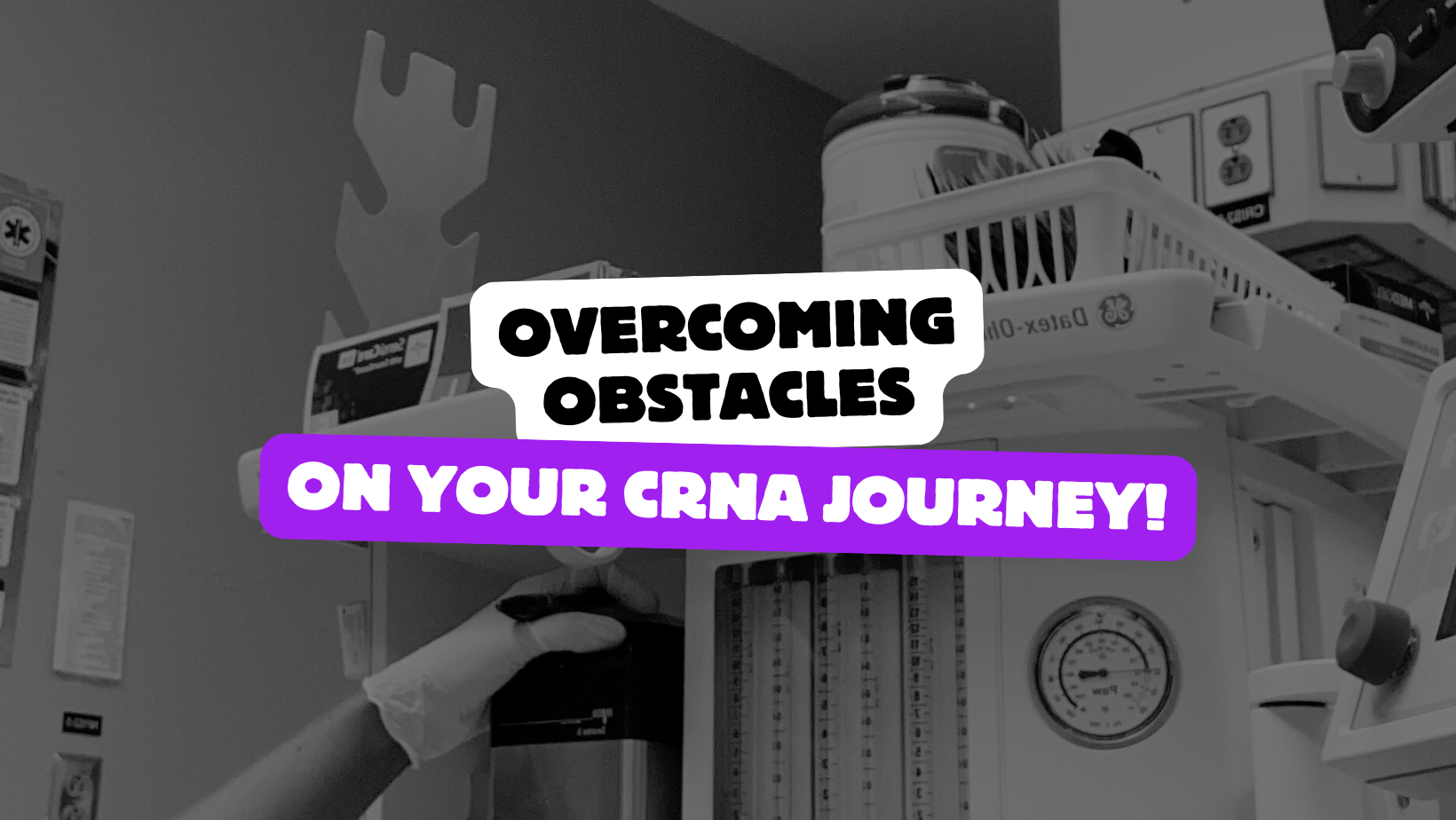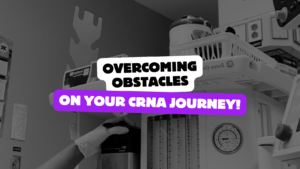Applying to Certified Registered Nurse Anesthetist (CRNA) programs is an exciting but demanding process. With increasing competition, rigorous academic standards, and multiple requirements, many aspiring CRNAs face common obstacles that can make the journey feel overwhelming.
If you’re preparing your application, understanding these challenges ahead of time can help you navigate them effectively. Here are the top 3 most common hurdles applicants face and practical ways to overcome them.
1. Meeting the Academic Requirements
CRNA programs have strict academic expectations, with the majority of schools requiring a minimum GPA of 3.0 (ideally 3.5 or greater to be competitive), strong science coursework, and competitive GRE scores (if required).
Common Challenges:
- A low undergraduate GPA may not reflect your current knowledge or capabilities.
- Struggles with science-heavy courses, such as chemistry, pharmacology, or pathophysiology.
- Difficulty balancing full-time work while preparing for the GRE or taking additional coursework.
Solutions:
- Consider retaking key science courses or enrolling in graduate-level coursework to demonstrate academic improvement.
- Use targeted GRE study strategies or enroll in a prep course to boost your score.
- Highlight clinical experience, leadership roles, and certifications (CCRN, CMC, CSC) to strengthen your application beyond GPA.
2. Gaining the Strong Clinical Experience
CRNA programs require must-have ICU experience where nurses manage high-acuity patients with complex medical conditions. The focus isn’t necessarily on working in a Level 1 trauma center or a CVICU, but rather on gaining adequate experience handling ventilators, vasoactive drips, invasive monitoring, and critical decision-making.
Common Challenges:
- Working in an ICU that doesn’t provide enough exposure to high-acuity cases.
- Limited hands-on experience with ventilators, hemodynamic monitoring, and titration of vasoactive drips.
- Not being actively involved in emergency situations, rapid response teams, or advanced procedural care.
Solutions:
- If needed, transition to a high-acuity ICU that offers more complex cases.
- Take on charge nurse roles, mentoring opportunities, or committee participation to show leadership.
- Ensure that your experience involves managing unstable patients, interpreting complex labs, and working with invasive devices like arterial lines and central lines.
3. Acing the CRNA School Interview
Once you’re invited for an interview, the pressure is on. Programs use interviews to assess your clinical knowledge, communication skills, and ability to handle stress.
Common Challenges:
- Nervousness, especially with clinical scenario questions.
- Struggling to articulate why you chose CRNA over other advanced nursing roles.
- Difficulty standing out in group interviews or structured panel formats.
Solutions:
- Practice common CRNA interview questions, including clinical case scenarios.
- Be ready to discuss your experiences, leadership skills, and ability to work under pressure.
- Schedule mock interviews with mentors or peers to refine your responses and build confidence.
Bottom Line
CRNA school applications are challenging but achievable with the right preparation. By identifying common obstacles ahead of time, you can take strategic steps to strengthen your application and increase your chances of acceptance.
If you’re feeling overwhelmed, remember—every successful CRNA once stood where you are now. Keep pushing forward, stay organized, and lean on resources and mentorship to support your journey.
Would you like structured support to help you prepare? Don’t go through your CRNA school application alone if you’re struggling with it. Our upcoming Overcoming Obstacles Workshop is designed to help you navigate these common challenges. Click here to join the next workshop.







